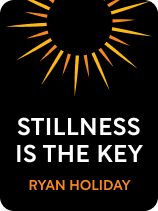

This article is an excerpt from the Shortform book guide to "Stillness Is the Key" by Ryan Holiday. Shortform has the world's best summaries and analyses of books you should be reading.
Like this article? Sign up for a free trial here.
What does it mean to “live virtuously”? How is virtue cultivated?
Living a virtuous life means abiding by your personal moral code. If you don’t have any moral principles, you’ll feel lost, empty, and directionless. However, when you live virtuously, you’ll feel good about yourself and your life.
With this in mind, here’s how you can cultivate your personal moral code to inform virtuous living.
Becoming Virtuous
Without a strong moral code to live by, Holiday says you’ll be confused and never have peace. For this reason, stillness requires cultivating virtue in your life, as a means of enriching your soul and guiding your behavior.
A virtuous life is worth living for its own sake, Holidays says, and you can cultivate virtue in yourself by intentionally defining your moral code. To define your moral principles, you should take time to really contemplate what’s important to you. To that end, ask yourself the following:
- How do I want to live?
- What do I stand for?
- What makes life worth living?
- What values would I rather die than not embody?
When you’ve answered these questions and know clearly what your moral principles are, you can call on them in decision-making and use them to guide you through confusion or difficulty.
Holiday says that relationships are one of the most soul-enriching things available to us. He says everything is meaningless and empty if we don’t have love and others to share it with. In fact, stillness is actually more for other people than for ourselves. In addition to providing nourishment for your soul, good relationships will require you to practice your virtuous behaviors, and therefore continue to grow.
| How to Identify Your Values In The Subtle Art of Not Giving a F*ck, Mark Manson argues that most self-help books give advice for reaching your life goals but fail to discuss how to actually define what your goals should be. He says identifying the right goals for your life rests on clearly defining your values, and he gives advice on thinking through this process. 1) Pay attention to your emotions. Notice what makes you feel happy, sad, angry, and so on. 2) When you have an emotional response to something, ask yourself why this thing is making you feel this way. 3) Identify the values underlying that feeling. For example, let’s say you notice a particular news story makes you feel unusually angry. When you stop and ask yourself why this anger is welling up, you recognize it’s because the story involved an incident of racism. This probably indicates that a sense of equality and justice in society is a deep value you hold. Make note of each of these values as you discover them, and use them as a basis for deciding what kinds of life goals to pursue. Manson does note that many people are not in touch with their emotions due to social conditioning. If you think that’s the case for you, this work would be better undertaken with the help of a therapist. |

———End of Preview———
Like what you just read? Read the rest of the world's best book summary and analysis of Ryan Holiday's "Stillness Is the Key" at Shortform.
Here's what you'll find in our full Stillness Is the Key summary:
- Why stillness is not just the absence of motion
- How to cultivate stillness in your mind, body, and soul
- Why you should start ignoring the news






